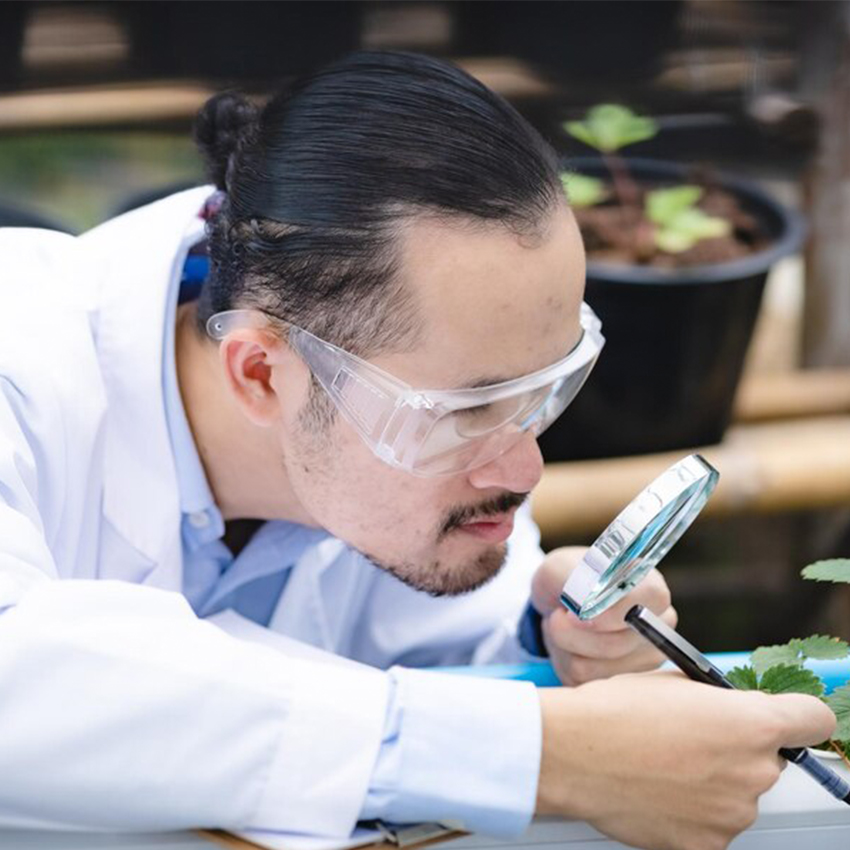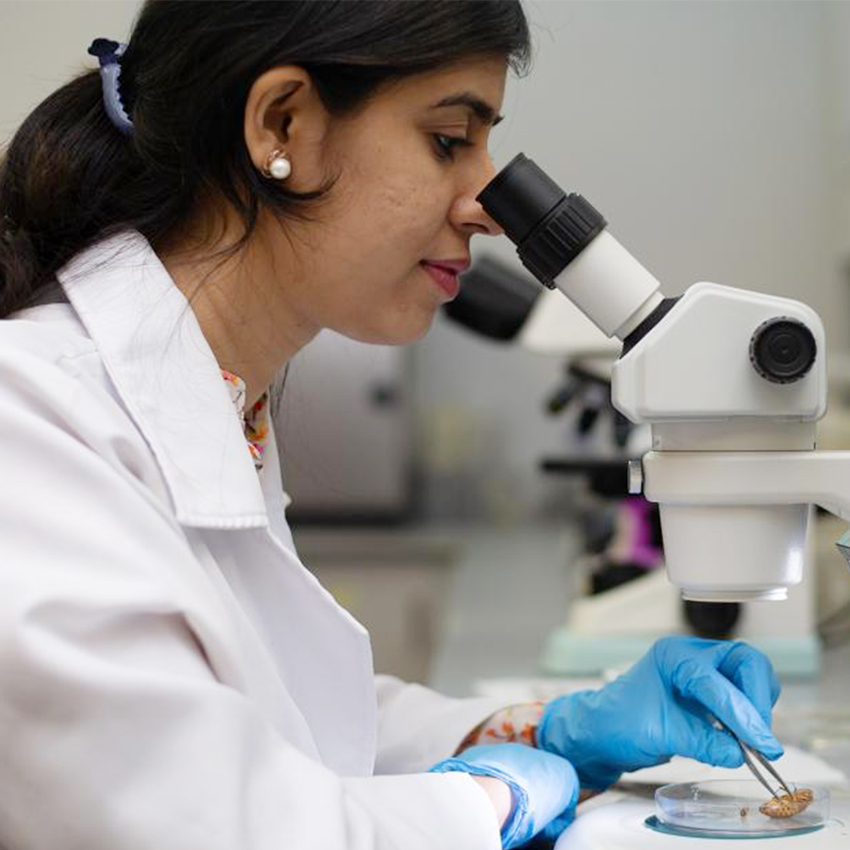
Life science companies operate in a complex environment characterized by strict regulations, technological advancements, and the need for specialized knowledge. By delegating non-core tasks to service providers, these firms can focus on their primary mission – advancing the understanding of biological processes and improving human health. Outsourcing grants access to a skilled workforce, advanced technologies, and industry-specific expertise, fostering innovation, cost-effectiveness, and agility in responding to industry trends and regulatory changes.
The life sciences sector continues to undergo profound transformation as scientific breakthroughs and technological innovations reshape research methodologies, development processes, and commercialization strategies. In this rapidly evolving landscape, strategic outsourcing has become an essential component of successful business models, enabling organizations to maintain scientific leadership while navigating increasing operational complexity. This approach has evolved significantly beyond simple cost reduction to become a fundamental enabler of innovation and competitive advantage in a knowledge-intensive industry.
Research and development outsourcing has become increasingly sophisticated, with specialized contract research organizations offering expertise across the entire R&D continuum from early discovery to late-stage clinical development. These partnerships provide life science companies with access to specialized technologies, therapeutic area expertise, and global research capabilities without the substantial fixed costs associated with maintaining comprehensive internal infrastructure. By leveraging these external capabilities, life science organizations can pursue multiple research avenues simultaneously while maintaining focus on their core scientific priorities and intellectual property development.
Regulatory affairs outsourcing has grown in strategic importance as life science companies navigate increasingly complex global regulatory frameworks. Specialized regulatory service providers offer deep expertise in evolving submission requirements, health authority interactions, and post-approval compliance across multiple jurisdictions. These partnerships are particularly valuable for organizations expanding internationally or developing novel therapeutic modalities that require specialized regulatory approaches. By accessing this expertise through outsourcing, life science companies can accelerate regulatory approvals while ensuring consistent compliance with diverse and evolving requirements.
The digital transformation of life sciences has created new opportunities for strategic outsourcing partnerships focused on data management, analytics, and technology implementation. Specialized providers offer expertise in areas such as real-world evidence generation, advanced analytics, and digital health technologies without requiring life science companies to build these rapidly evolving capabilities internally. These collaborations enable organizations to leverage cutting-edge digital approaches while maintaining focus on their core scientific and medical expertise.

Novartis sought to optimize its customer service operations to enhance customer satisfaction and retention. By partnering with a BPO firm, Novartis was able to access skilled personnel and advanced technology. The outsourced functions included customer service, technical support, and medical information support. This allowed Novartis to focus on their primary mission, resulting in improved customer satisfaction and business performance.

Johnson & Johnson, a multinational pharmaceutical and consumer goods company, outsourced its office-based call center operations to a third-party provider to bolster efficiency and customer service. The collaboration led to heightened customer satisfaction, improved agent productivity, and cost savings.
Life Science Outsourcing: Navigating Industry Transformation in 2025
The life sciences industry is experiencing unprecedented transformation in 2025, driven by scientific breakthroughs, technological innovation, and evolving healthcare paradigms. Today’s life science companies face complex challenges in research, development, and commercialization while operating in a highly regulated and competitive global marketplace. Outsourcing has emerged as a strategic solution that enables life science organizations to navigate these challenges while focusing on their core competencies of scientific innovation and therapeutic advancement.
Industry Trends and Challenges in 2025
Convergence of Digital Technologies and Life Sciences
The integration of digital technologies with traditional life science research and development has accelerated dramatically in 2025, creating a new paradigm of digitally-enabled life sciences. Advanced analytics, artificial intelligence, and machine learning are now embedded throughout the R&D process, from target identification to clinical trial design and real-world evidence generation.
While this digital transformation offers tremendous potential to accelerate innovation and enhance decision-making, implementing and maintaining these sophisticated systems requires specialized expertise in both life sciences and advanced technology. Many organizations struggle to build and retain the necessary cross-functional talent, particularly as competition for digital specialists intensifies across industries.
Decentralized and Virtual Clinical Trials
Clinical trial methodologies have undergone significant evolution in 2025, with decentralized and virtual approaches becoming increasingly mainstream. Remote patient monitoring, telehealth visits, direct-to-patient drug delivery, and digital outcome assessments have expanded trial accessibility while generating richer, more continuous patient data.
Implementing these innovative trial designs requires specialized capabilities in digital health technologies, remote monitoring systems, and patient engagement strategies. Many life science companies find it challenging to develop these capabilities internally while maintaining compliance with evolving regulatory frameworks for decentralized research.
Real-World Evidence and Value-Based Healthcare
The life sciences industry has embraced real-world evidence (RWE) as a critical complement to traditional clinical trials in 2025, with RWE now informing regulatory decisions, reimbursement negotiations, and clinical practice guidelines. This shift reflects the broader movement toward value-based healthcare, where therapeutic value is increasingly measured by real-world outcomes rather than controlled trial results alone.
Generating, analyzing, and leveraging real-world evidence requires sophisticated data infrastructure, advanced analytics capabilities, and deep expertise in health economics and outcomes research. Many life science organizations struggle to build comprehensive in-house RWE capabilities, particularly as data sources and methodological standards continue to evolve rapidly.
Advanced Therapeutics and Manufacturing Complexity
The life sciences pipeline has become increasingly dominated by advanced therapeutics in 2025, including cell and gene therapies, RNA-based treatments, and precision medicines. These complex modalities offer unprecedented potential to address previously untreatable conditions but introduce significant challenges in manufacturing, quality control, and supply chain management.
Developing and scaling production processes for these advanced therapeutics requires specialized expertise in bioprocessing, analytical methods, and regulatory compliance. Many life science companies, particularly emerging biotechs, lack the internal capabilities to navigate these manufacturing complexities efficiently.
Global Regulatory Harmonization and Complexity
The regulatory landscape for life sciences continues to evolve in 2025, with progress toward greater international harmonization balanced by persistent regional differences and emerging frameworks for novel therapeutic modalities. Regulatory agencies worldwide are implementing more streamlined pathways for breakthrough innovations while maintaining rigorous standards for safety and efficacy.
Navigating this complex regulatory environment requires deep expertise in evolving requirements across multiple jurisdictions. Many life science organizations struggle to maintain comprehensive in-house regulatory capabilities, particularly as they expand globally and encounter diverse regional requirements.
How Life Science Outsourcing Addresses Industry Challenges
Outsourcing provides life science companies with the specialized expertise, operational flexibility, and cost efficiency needed to navigate industry challenges while maintaining focus on core scientific innovation. By partnering with experienced service providers, life science organizations can access critical capabilities without the overhead of building and maintaining these functions internally.
Front Office Services
Medical Information and Scientific Communication
Specialized professionals respond to healthcare professional inquiries with accurate, compliant information about life science products, clinical data, and therapeutic applications. These teams maintain comprehensive knowledge of product profiles and relevant scientific literature while ensuring all communications adhere to regulatory requirements.
Healthcare Professional Engagement
Dedicated representatives manage relationships with physicians, researchers, and other healthcare providers, delivering scientific information, educational resources, and clinical updates. These engagement specialists maintain deep therapeutic area knowledge while adhering to industry codes of conduct and compliance requirements.
Patient Support Programs
Professional teams administer patient support services, helping individuals navigate treatment journeys through education, adherence support, and access assistance. These specialists enhance the patient experience while ensuring all interactions comply with privacy regulations and ethical standards.
Market Access and Reimbursement
Experienced professionals engage with payers, health technology assessment bodies, and formulary committees, articulating product value propositions and negotiating access agreements. These specialists combine health economics expertise with negotiation skills to optimize market access for life science innovations.
Pharmacovigilance and Safety Reporting
Dedicated teams collect, process, and analyze adverse event reports, ensuring timely reporting to regulatory authorities and supporting ongoing safety monitoring. These specialists maintain expertise in evolving pharmacovigilance requirements while implementing efficient processes for safety signal detection and evaluation.
Clinical Trial Support
Professional coordinators manage site relationships, patient recruitment, data collection, and study documentation, supporting efficient clinical trial execution. These teams implement standardized processes while ensuring compliance with Good Clinical Practice (GCP) requirements.
Back Office Services
Regulatory Affairs and Compliance
Expert regulatory professionals prepare and submit regulatory documentation, monitor compliance requirements, and support interactions with regulatory authorities. These specialists maintain expertise in evolving regulatory frameworks across multiple jurisdictions while implementing efficient processes for submission management.
Quality Assurance and Control
Dedicated QA/QC teams develop and monitor quality systems, conduct audits, and ensure compliance with GxP requirements across life science operations. These professionals maintain expertise in evolving quality standards while supporting continuous improvement initiatives.
Data Management and Biostatistics
Specialized data professionals design data collection systems, manage clinical and research databases, and perform statistical analyses to support evidence generation. These experts implement robust data governance practices while applying advanced analytical methods to extract meaningful insights.
Laboratory Services and Testing
Expert scientists and technicians perform specialized laboratory procedures, including bioanalytical testing, biomarker analysis, and stability studies. These professionals maintain expertise in evolving analytical methods while ensuring compliance with relevant quality standards.
Supply Chain and Logistics Management
Experienced professionals manage global supply chains for clinical and commercial products, ensuring reliable distribution while maintaining product integrity. These specialists implement efficient logistics processes while ensuring compliance with applicable regulations for life science products.
Research and Development Support
Dedicated scientists provide specialized research services, including assay development, screening, and preclinical testing, complementing internal R&D capabilities. These professionals maintain expertise in evolving scientific methodologies while providing flexibility to scale resources based on project needs.
By leveraging these outsourced services, life science companies can navigate the complex challenges of 2025 while maintaining focus on their core competencies of scientific innovation and therapeutic advancement. As the industry continues to evolve, strategic outsourcing partnerships will play an increasingly important role in helping life science organizations accelerate development timelines, optimize resource allocation, and bring transformative treatments to patients worldwide.
Life Science Outsourcing to the Philippines
 The Life Science industry benefits significantly from the Philippines’ strong capabilities in research support, data management, and customer care. Filipino professionals are well-versed in handling specialized tasks such as clinical trial data management, regulatory documentation, and patient outreach programs. Their proficiency in English and meticulous approach to data accuracy make them ideal for managing sensitive life sciences information. The Philippines’ workforce is also adept at providing empathetic customer support, a key aspect for life sciences companies dealing with healthcare providers and patients. Outsourcing to the Philippines helps life sciences firms maintain data integrity, comply with regulatory standards, and enhance overall operational efficiency, allowing them to focus on core research and development initiatives.
The Life Science industry benefits significantly from the Philippines’ strong capabilities in research support, data management, and customer care. Filipino professionals are well-versed in handling specialized tasks such as clinical trial data management, regulatory documentation, and patient outreach programs. Their proficiency in English and meticulous approach to data accuracy make them ideal for managing sensitive life sciences information. The Philippines’ workforce is also adept at providing empathetic customer support, a key aspect for life sciences companies dealing with healthcare providers and patients. Outsourcing to the Philippines helps life sciences firms maintain data integrity, comply with regulatory standards, and enhance overall operational efficiency, allowing them to focus on core research and development initiatives.
Life Science Outsourcing to India
 India is a leading destination for outsourcing in the Life Science sector, offering extensive services in research and development, data analysis, and regulatory compliance. Indian professionals, with their strong background in pharmaceuticals and biotechnology, excel in complex projects such as drug development, clinical research, and bioinformatics. The country’s advanced research facilities and focus on scientific innovation make it a hub for life science companies seeking to develop breakthrough products and therapies. India’s cost-effective and scalable outsourcing models provide firms with high-quality scientific expertise and state-of-the-art facilities, facilitating faster drug development and market entry.
India is a leading destination for outsourcing in the Life Science sector, offering extensive services in research and development, data analysis, and regulatory compliance. Indian professionals, with their strong background in pharmaceuticals and biotechnology, excel in complex projects such as drug development, clinical research, and bioinformatics. The country’s advanced research facilities and focus on scientific innovation make it a hub for life science companies seeking to develop breakthrough products and therapies. India’s cost-effective and scalable outsourcing models provide firms with high-quality scientific expertise and state-of-the-art facilities, facilitating faster drug development and market entry.
LIFE SCIENCE OUTSOURCING TO SOUTH AFRICA
 South Africa is becoming increasingly recognized for its contributions to life science outsourcing, with a particular focus on clinical research, drug development, and public health solutions. The country’s diverse population and unique ecosystems offer valuable opportunities for life science research and trials, particularly in areas such as infectious diseases, genetics, and biodiversity. South African firms and research institutions are equipped with skilled professionals and advanced facilities, supporting both local and international life science projects. The government’s investment in health and science technology, along with partnerships with global life science organizations, positions South Africa as a strategic partner for outsourcing life science research and development, providing insights into both African and global health challenges.
South Africa is becoming increasingly recognized for its contributions to life science outsourcing, with a particular focus on clinical research, drug development, and public health solutions. The country’s diverse population and unique ecosystems offer valuable opportunities for life science research and trials, particularly in areas such as infectious diseases, genetics, and biodiversity. South African firms and research institutions are equipped with skilled professionals and advanced facilities, supporting both local and international life science projects. The government’s investment in health and science technology, along with partnerships with global life science organizations, positions South Africa as a strategic partner for outsourcing life science research and development, providing insights into both African and global health challenges.
LIFE SCIENCE OUTSOURCING TO MEXICO
 Mexico’s life science sector is gaining momentum, driven by its growing pharmaceutical industry and research capabilities in health sciences. The country offers competitive advantages for life science outsourcing, including a skilled workforce, cost-effective manufacturing, and proximity to major markets like the United States. Mexican research institutions and companies are involved in various aspects of life science, including clinical trials, biopharmaceutical production, and medical device manufacturing. Mexico’s commitment to improving its regulatory framework for health and life science products enhances its attractiveness as a destination for outsourcing life science projects, aiming to ensure quality, safety, and innovation.
Mexico’s life science sector is gaining momentum, driven by its growing pharmaceutical industry and research capabilities in health sciences. The country offers competitive advantages for life science outsourcing, including a skilled workforce, cost-effective manufacturing, and proximity to major markets like the United States. Mexican research institutions and companies are involved in various aspects of life science, including clinical trials, biopharmaceutical production, and medical device manufacturing. Mexico’s commitment to improving its regulatory framework for health and life science products enhances its attractiveness as a destination for outsourcing life science projects, aiming to ensure quality, safety, and innovation.
LIFE SCIENCE OUTSOURCING TO COLOMBIA
 Colombia is emerging as a vibrant destination for life science outsourcing in Latin America, with strengths in biodiversity research, pharmaceutical manufacturing, and healthcare services. The country’s rich natural resources and biodiversity offer unique opportunities for life science research, particularly in natural product discovery and environmental studies. Colombian firms and research organizations are well-positioned to collaborate on international life science projects, supported by a commitment to research and development in healthcare and life sciences. The government’s focus on innovation and technology transfer in the life sciences sector, coupled with Colombia’s strategic location, makes it an appealing partner for global life science companies seeking to diversify their research and development activities.
Colombia is emerging as a vibrant destination for life science outsourcing in Latin America, with strengths in biodiversity research, pharmaceutical manufacturing, and healthcare services. The country’s rich natural resources and biodiversity offer unique opportunities for life science research, particularly in natural product discovery and environmental studies. Colombian firms and research organizations are well-positioned to collaborate on international life science projects, supported by a commitment to research and development in healthcare and life sciences. The government’s focus on innovation and technology transfer in the life sciences sector, coupled with Colombia’s strategic location, makes it an appealing partner for global life science companies seeking to diversify their research and development activities.
LIFE SCIENCE OUTSOURCING TO THE UNITED STATES
 The United States is a global leader in life science outsourcing, home to the world’s largest biotechnology and pharmaceutical companies, as well as top-ranked universities and research institutions. The U.S. offers unparalleled expertise in drug discovery, biotechnological innovation, and clinical research, supported by a robust regulatory environment and significant investment in research and development. American firms and academic institutions are at the forefront of advancements in genomics, precision medicine, and biopharmaceuticals, making the U.S. an ideal destination for comprehensive life science outsourcing projects. The vibrant ecosystem of startups, venture capital, and collaboration opportunities in the U.S. drives innovation in life sciences, attracting companies worldwide to leverage American expertise and technology.
The United States is a global leader in life science outsourcing, home to the world’s largest biotechnology and pharmaceutical companies, as well as top-ranked universities and research institutions. The U.S. offers unparalleled expertise in drug discovery, biotechnological innovation, and clinical research, supported by a robust regulatory environment and significant investment in research and development. American firms and academic institutions are at the forefront of advancements in genomics, precision medicine, and biopharmaceuticals, making the U.S. an ideal destination for comprehensive life science outsourcing projects. The vibrant ecosystem of startups, venture capital, and collaboration opportunities in the U.S. drives innovation in life sciences, attracting companies worldwide to leverage American expertise and technology.
LIFE SCIENCE OUTSOURCING TO CANADA
 Canada’s life science sector is known for its strong research capabilities, innovative healthcare solutions, and commitment to quality and safety. Canadian outsourcing providers offer expertise across a wide spectrum of life sciences, including pharmaceutical research and development, medical devices, and health technologies. The country’s collaborative research environment, supported by government funding and partnerships between academia and industry, fosters innovation in life sciences. Canada’s emphasis on ethical standards and regulatory excellence, combined with its skilled workforce, positions it as a trusted destination for life science outsourcing, particularly for projects requiring cutting-edge research and development.
Canada’s life science sector is known for its strong research capabilities, innovative healthcare solutions, and commitment to quality and safety. Canadian outsourcing providers offer expertise across a wide spectrum of life sciences, including pharmaceutical research and development, medical devices, and health technologies. The country’s collaborative research environment, supported by government funding and partnerships between academia and industry, fosters innovation in life sciences. Canada’s emphasis on ethical standards and regulatory excellence, combined with its skilled workforce, positions it as a trusted destination for life science outsourcing, particularly for projects requiring cutting-edge research and development.
LIFE SCIENCE OUTSOURCING TO AUSTRALIA
 Australia is recognized for its contributions to the life science industry, with strong capabilities in medical research, biotechnology, and clinical trials. The country’s advanced healthcare system, world-class research institutions, and supportive regulatory framework make it an attractive destination for life science outsourcing. Australian firms and researchers excel in areas such as cancer research, regenerative medicine, and digital health, supported by government initiatives to promote health innovation and research collaboration. The strategic location of Australia provides an advantage for companies looking to access the Asia-Pacific life science market, offering a combination of expertise, innovation, and quality assurance in life science outsourcing.
Australia is recognized for its contributions to the life science industry, with strong capabilities in medical research, biotechnology, and clinical trials. The country’s advanced healthcare system, world-class research institutions, and supportive regulatory framework make it an attractive destination for life science outsourcing. Australian firms and researchers excel in areas such as cancer research, regenerative medicine, and digital health, supported by government initiatives to promote health innovation and research collaboration. The strategic location of Australia provides an advantage for companies looking to access the Asia-Pacific life science market, offering a combination of expertise, innovation, and quality assurance in life science outsourcing.
LIFE SCIENCE OUTSOURCING TO THE UNITED KINGDOM
 The United Kingdom, particularly its renowned “Golden Triangle” of London, Oxford, and Cambridge, is a powerhouse in life science outsourcing. The UK boasts a rich ecosystem of biotech and pharmaceutical companies, leading research universities, and innovation hubs that drive advancements in life sciences. British firms and institutions offer world-class expertise in drug development, genomics, and personalized medicine, supported by a strong regulatory environment and a history of scientific excellence. The UK’s focus on fostering innovation and collaboration in the life sciences sector, combined with its strategic position in Europe, makes it an attractive destination for outsourcing life science research and development, ensuring access to cutting-edge technologies and research networks.
The United Kingdom, particularly its renowned “Golden Triangle” of London, Oxford, and Cambridge, is a powerhouse in life science outsourcing. The UK boasts a rich ecosystem of biotech and pharmaceutical companies, leading research universities, and innovation hubs that drive advancements in life sciences. British firms and institutions offer world-class expertise in drug development, genomics, and personalized medicine, supported by a strong regulatory environment and a history of scientific excellence. The UK’s focus on fostering innovation and collaboration in the life sciences sector, combined with its strategic position in Europe, makes it an attractive destination for outsourcing life science research and development, ensuring access to cutting-edge technologies and research networks.
LIFE SCIENCE OUTSOURCING TO THE DOMINICAN REPUBLIC
 The Dominican Republic is strategically positioning itself as an emerging hub for life science outsourcing, capitalizing on its skilled workforce in healthcare and research fields. The country is becoming increasingly recognized for its capabilities in clinical research support, pharmacovigilance, and medical device manufacturing. With a focus on education and training in life sciences, the Dominican Republic is cultivating a pool of professionals adept at meeting the complex needs of the global life science sector. Its geographical proximity to North America enhances its appeal as a nearshore outsourcing destination, offering life science firms the benefits of operational flexibility, cost efficiency, and cultural compatibility. The Dominican Republic’s commitment to bolstering its life science infrastructure and regulatory environment presents an attractive opportunity for companies seeking reliable and innovative outsourcing solutions.
The Dominican Republic is strategically positioning itself as an emerging hub for life science outsourcing, capitalizing on its skilled workforce in healthcare and research fields. The country is becoming increasingly recognized for its capabilities in clinical research support, pharmacovigilance, and medical device manufacturing. With a focus on education and training in life sciences, the Dominican Republic is cultivating a pool of professionals adept at meeting the complex needs of the global life science sector. Its geographical proximity to North America enhances its appeal as a nearshore outsourcing destination, offering life science firms the benefits of operational flexibility, cost efficiency, and cultural compatibility. The Dominican Republic’s commitment to bolstering its life science infrastructure and regulatory environment presents an attractive opportunity for companies seeking reliable and innovative outsourcing solutions.
LIFE SCIENCE OUTSOURCING TO BRAZIL
 Brazil’s life science sector stands out for its extensive biodiversity and strong foundation in scientific research, making it an attractive destination for outsourcing activities such as biopharmaceutical research, environmental biotechnology, and clinical trials. The country’s research institutions and biotech firms are at the forefront of innovation in areas like genetics, tropical diseases, and agricultural biotechnology. Brazil’s sophisticated research capabilities, combined with a government supportive of science and technology initiatives, provide a conducive environment for life science companies looking to harness Brazil’s unique resources and expertise. Brazil’s large and diverse population offers significant advantages for clinical research and drug development, positioning it as a key partner for life science firms aiming to expand their global research and development efforts.
Brazil’s life science sector stands out for its extensive biodiversity and strong foundation in scientific research, making it an attractive destination for outsourcing activities such as biopharmaceutical research, environmental biotechnology, and clinical trials. The country’s research institutions and biotech firms are at the forefront of innovation in areas like genetics, tropical diseases, and agricultural biotechnology. Brazil’s sophisticated research capabilities, combined with a government supportive of science and technology initiatives, provide a conducive environment for life science companies looking to harness Brazil’s unique resources and expertise. Brazil’s large and diverse population offers significant advantages for clinical research and drug development, positioning it as a key partner for life science firms aiming to expand their global research and development efforts.
LIFE SCIENCE OUTSOURCING TO COSTA RICA
 Costa Rica is rapidly emerging as a significant player in the life science outsourcing field, with its high-quality healthcare system, advanced biotechnology sector, and strategic focus on sustainability and environmental conservation. The country is recognized for its contributions to medical device manufacturing, clinical research, and conservation biology, supported by a highly educated, bilingual workforce. Costa Rica’s commitment to innovation in life sciences is evident in its investment in research and development facilities and its collaboration with international life science companies. The nation’s emphasis on ethical practices, environmental sustainability, and strategic location in Central America make it an appealing choice for life science firms seeking a partner that aligns with their values and can provide access to cutting-edge scientific expertise and technology.
Costa Rica is rapidly emerging as a significant player in the life science outsourcing field, with its high-quality healthcare system, advanced biotechnology sector, and strategic focus on sustainability and environmental conservation. The country is recognized for its contributions to medical device manufacturing, clinical research, and conservation biology, supported by a highly educated, bilingual workforce. Costa Rica’s commitment to innovation in life sciences is evident in its investment in research and development facilities and its collaboration with international life science companies. The nation’s emphasis on ethical practices, environmental sustainability, and strategic location in Central America make it an appealing choice for life science firms seeking a partner that aligns with their values and can provide access to cutting-edge scientific expertise and technology.
LIFE SCIENCE OUTSOURCING TO BELIZE
 Belize is establishing itself as an appealing destination for life sciences outsourcing, driven by its rich biodiversity and growing emphasis on scientific research and healthcare development. While traditionally not known as a hub for life science, Belize’s unique natural resources offer untapped opportunities for biopharmaceutical research, especially in the fields of botany and marine biology, where its ecosystems can provide valuable insights and compounds for drug discovery and natural product research. The country’s efforts to bolster its healthcare infrastructure and educational programs in the sciences signal a commitment to supporting life sciences industries. With English as the official language and a strategic geographical location close to major North American markets, Belize presents an attractive option for life sciences companies looking to explore new areas of research and development.
Belize is establishing itself as an appealing destination for life sciences outsourcing, driven by its rich biodiversity and growing emphasis on scientific research and healthcare development. While traditionally not known as a hub for life science, Belize’s unique natural resources offer untapped opportunities for biopharmaceutical research, especially in the fields of botany and marine biology, where its ecosystems can provide valuable insights and compounds for drug discovery and natural product research. The country’s efforts to bolster its healthcare infrastructure and educational programs in the sciences signal a commitment to supporting life sciences industries. With English as the official language and a strategic geographical location close to major North American markets, Belize presents an attractive option for life sciences companies looking to explore new areas of research and development.
LIFE SCIENCE OUTSOURCING TO JAPAN
 Japan is renowned for its advanced technological infrastructure and robust research capabilities, making it a prime destination for life sciences outsourcing. Local professionals excel in pharmaceutical development, regenerative medicine, and medical device innovation, supported by the country’s rigorous regulatory standards and a culture of precision and quality. Its investment in cutting-edge technologies such as AI and robotics enhances its ability to deliver sophisticated life sciences solutions. The nation’s collaborative ecosystem, involving leading universities, research institutions, and global life science companies, fosters innovation and accelerates the development of breakthrough therapies and products. Outsourcing to Japan provides life sciences firms with access to high-quality expertise, advanced facilities, and a market that prioritizes health and technological advancement.
Japan is renowned for its advanced technological infrastructure and robust research capabilities, making it a prime destination for life sciences outsourcing. Local professionals excel in pharmaceutical development, regenerative medicine, and medical device innovation, supported by the country’s rigorous regulatory standards and a culture of precision and quality. Its investment in cutting-edge technologies such as AI and robotics enhances its ability to deliver sophisticated life sciences solutions. The nation’s collaborative ecosystem, involving leading universities, research institutions, and global life science companies, fosters innovation and accelerates the development of breakthrough therapies and products. Outsourcing to Japan provides life sciences firms with access to high-quality expertise, advanced facilities, and a market that prioritizes health and technological advancement.
LIFE SCIENCE OUTSOURCING TO EL SALVADOR
 El Salvador is emerging as a noteworthy destination for life sciences outsourcing, driven by strategic initiatives to enhance healthcare services and scientific research. Its growing pool of skilled professionals is adept in areas such as clinical trials, medical data management, and pharmaceutical manufacturing. The country’s emphasis on improving healthcare infrastructure and regulatory environment aligns with global standards, making it an attractive partner for life sciences companies. The nation’s proximity to North American markets offers logistical advantages, while its cost-effective solutions ensure competitive pricing. El Salvador’s focus on education and training in the life sciences sector aims to build a robust workforce capable of supporting complex life sciences projects, ensuring quality and compliance.
El Salvador is emerging as a noteworthy destination for life sciences outsourcing, driven by strategic initiatives to enhance healthcare services and scientific research. Its growing pool of skilled professionals is adept in areas such as clinical trials, medical data management, and pharmaceutical manufacturing. The country’s emphasis on improving healthcare infrastructure and regulatory environment aligns with global standards, making it an attractive partner for life sciences companies. The nation’s proximity to North American markets offers logistical advantages, while its cost-effective solutions ensure competitive pricing. El Salvador’s focus on education and training in the life sciences sector aims to build a robust workforce capable of supporting complex life sciences projects, ensuring quality and compliance.
LIFE SCIENCE OUTSOURCING TO EGYPT
 Egypt is becoming an increasingly significant player in life sciences outsourcing, leveraging its strong academic foundation and expanding healthcare sector. The nation offers extensive capabilities in clinical research, pharmaceutical manufacturing, and medical technology development. Local professionals, known for their scientific expertise and adaptability, contribute to various stages of drug development and regulatory compliance. The government’s investment in health sciences education and infrastructure, along with partnerships with international research organizations, enhances the country’s appeal as a life sciences outsourcing destination. Egypt’s strategic location at the crossroads of Africa, Asia, and Europe, combined with its commitment to scientific innovation, positions it as a valuable partner for global life sciences companies seeking to expand their research and development activities.
Egypt is becoming an increasingly significant player in life sciences outsourcing, leveraging its strong academic foundation and expanding healthcare sector. The nation offers extensive capabilities in clinical research, pharmaceutical manufacturing, and medical technology development. Local professionals, known for their scientific expertise and adaptability, contribute to various stages of drug development and regulatory compliance. The government’s investment in health sciences education and infrastructure, along with partnerships with international research organizations, enhances the country’s appeal as a life sciences outsourcing destination. Egypt’s strategic location at the crossroads of Africa, Asia, and Europe, combined with its commitment to scientific innovation, positions it as a valuable partner for global life sciences companies seeking to expand their research and development activities.
LIFE SCIENCE OUTSOURCING TO TURKEY
 Turkey is gaining recognition in the life sciences outsourcing landscape, offering a blend of advanced research capabilities, cost-effective services, and a strategic geographical position. It excels in areas such as pharmaceutical research and development, clinical trials, and biotechnology. Turkish professionals bring a high level of expertise and dedication to life sciences projects, supported by the country’s modern research facilities and regulatory framework. The focus on fostering innovation through government initiatives and partnerships with global life science firms drives progress in drug discovery and medical technology. The nation’s proximity to both European and Middle Eastern markets, combined with its skilled workforce and commitment to quality, makes Turkey an attractive destination for life sciences outsourcing.
Turkey is gaining recognition in the life sciences outsourcing landscape, offering a blend of advanced research capabilities, cost-effective services, and a strategic geographical position. It excels in areas such as pharmaceutical research and development, clinical trials, and biotechnology. Turkish professionals bring a high level of expertise and dedication to life sciences projects, supported by the country’s modern research facilities and regulatory framework. The focus on fostering innovation through government initiatives and partnerships with global life science firms drives progress in drug discovery and medical technology. The nation’s proximity to both European and Middle Eastern markets, combined with its skilled workforce and commitment to quality, makes Turkey an attractive destination for life sciences outsourcing.
LIFE SCIENCE OUTSOURCING TO THE UAE
 The United Arab Emirates (UAE) is rapidly becoming a hub for life science outsourcing, driven by visionary leadership and substantial investments in healthcare and technology. It offers state-of-the-art facilities, world-class research institutions, and a highly skilled workforce proficient in clinical research, biotechnology, and medical device development. Its strategic location, bridging East and West, enhances its appeal as a global outsourcing partner. The focus on regulatory excellence, innovation, and sustainability, coupled with the country’s commitment to becoming a leader in health sciences, attracts international life sciences firms. Outsourcing to the UAE provides access to advanced scientific expertise, cutting-edge technologies, and a supportive business environment, fostering growth and innovation in the life sciences sector.
The United Arab Emirates (UAE) is rapidly becoming a hub for life science outsourcing, driven by visionary leadership and substantial investments in healthcare and technology. It offers state-of-the-art facilities, world-class research institutions, and a highly skilled workforce proficient in clinical research, biotechnology, and medical device development. Its strategic location, bridging East and West, enhances its appeal as a global outsourcing partner. The focus on regulatory excellence, innovation, and sustainability, coupled with the country’s commitment to becoming a leader in health sciences, attracts international life sciences firms. Outsourcing to the UAE provides access to advanced scientific expertise, cutting-edge technologies, and a supportive business environment, fostering growth and innovation in the life sciences sector.
LIFE SCIENCE OUTSOURCING TO JAMAICA
 Jamaica is emerging as a promising destination for life science outsourcing, leveraging its strong healthcare system and commitment to scientific research. Local professionals are skilled in clinical data management, pharmaceutical manufacturing, and public health initiatives. Its strategic location in the Caribbean, along with its English-speaking workforce, offers advantages for companies seeking nearshore outsourcing solutions. The government’s focus on improving healthcare infrastructure and fostering partnerships with international research institutions enhances the country’s capabilities in the life sciences sector. The emphasis on education and training in health sciences ensures a steady supply of qualified professionals, making Jamaica an attractive partner for life sciences firms aiming to optimize their operations and innovate.
Jamaica is emerging as a promising destination for life science outsourcing, leveraging its strong healthcare system and commitment to scientific research. Local professionals are skilled in clinical data management, pharmaceutical manufacturing, and public health initiatives. Its strategic location in the Caribbean, along with its English-speaking workforce, offers advantages for companies seeking nearshore outsourcing solutions. The government’s focus on improving healthcare infrastructure and fostering partnerships with international research institutions enhances the country’s capabilities in the life sciences sector. The emphasis on education and training in health sciences ensures a steady supply of qualified professionals, making Jamaica an attractive partner for life sciences firms aiming to optimize their operations and innovate.
LIFE SCIENCE OUTSOURCING TO VIETNAM
 Vietnam is making significant strides in the life sciences sector, becoming a key destination for outsourcing due to its dynamic growth and investment in healthcare and research. Local professionals are proficient in pharmaceutical development, clinical trials, and medical data analysis, supported by a growing number of modern research facilities. The government’s commitment to improving healthcare standards and fostering innovation in life sciences attracts global firms. The country’s cost-effective services, combined with its strategic location in Southeast Asia, provide logistical benefits for life sciences companies. The emphasis on building a skilled workforce and enhancing its regulatory framework positions Vietnam as a competitive player in the global life sciences outsourcing market.
Vietnam is making significant strides in the life sciences sector, becoming a key destination for outsourcing due to its dynamic growth and investment in healthcare and research. Local professionals are proficient in pharmaceutical development, clinical trials, and medical data analysis, supported by a growing number of modern research facilities. The government’s commitment to improving healthcare standards and fostering innovation in life sciences attracts global firms. The country’s cost-effective services, combined with its strategic location in Southeast Asia, provide logistical benefits for life sciences companies. The emphasis on building a skilled workforce and enhancing its regulatory framework positions Vietnam as a competitive player in the global life sciences outsourcing market.
LIFE SCIENCE OUTSOURCING TO MALAYSIA
 Malaysia is becoming a preferred destination for life science outsourcing, thanks to its robust healthcare system, advanced research capabilities, and strategic initiatives to promote biotechnology and pharmaceutical industries. Local professionals excel in clinical research, regulatory affairs, and biopharmaceutical manufacturing, supported by state-of-the-art facilities and government incentives for innovation. The country’s strategic location in Southeast Asia, coupled with its multilingual workforce, provides logistical and cultural advantages for global life sciences firms. Malaysia’s focus on fostering public-private partnerships and investing in scientific research and development ensures high-quality outsourcing solutions. The nation’s commitment to regulatory compliance, quality standards, and technological advancement makes it an attractive partner for life sciences outsourcing projects.
Malaysia is becoming a preferred destination for life science outsourcing, thanks to its robust healthcare system, advanced research capabilities, and strategic initiatives to promote biotechnology and pharmaceutical industries. Local professionals excel in clinical research, regulatory affairs, and biopharmaceutical manufacturing, supported by state-of-the-art facilities and government incentives for innovation. The country’s strategic location in Southeast Asia, coupled with its multilingual workforce, provides logistical and cultural advantages for global life sciences firms. Malaysia’s focus on fostering public-private partnerships and investing in scientific research and development ensures high-quality outsourcing solutions. The nation’s commitment to regulatory compliance, quality standards, and technological advancement makes it an attractive partner for life sciences outsourcing projects.





